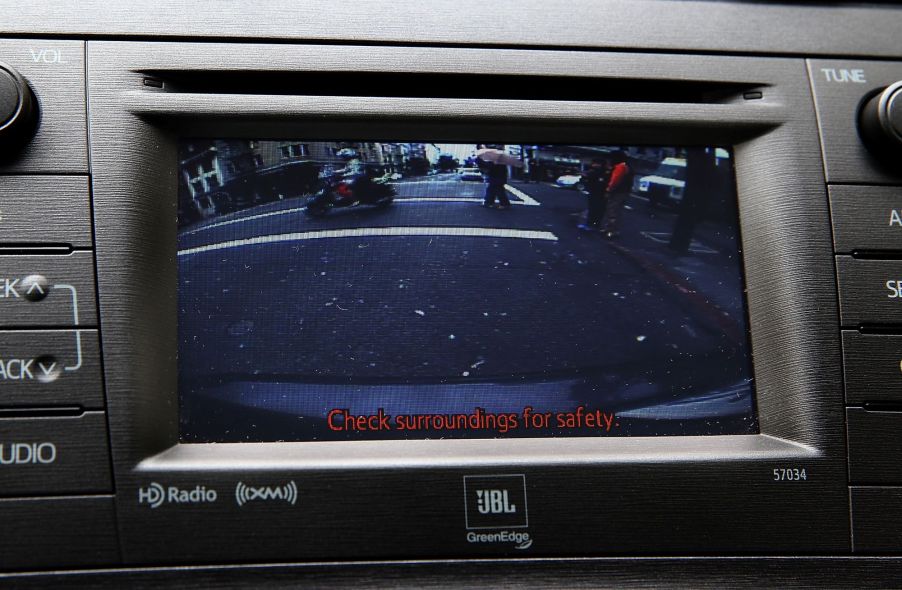
Can Backup Cameras Record?
Backup cameras are beneficial features available in many cars sold today. But having a camera onboard does raise a question. If another vehicle hits you in the rear, does the camera capture the accident? We will answer that question and explain all the legal issues revolving around recording while driving.

Why backup cameras usually don’t record
According to Camera Source, there are two reasons why backup cameras don’t typically record. The first reason is battery power. The cameras only power on when you put your vehicle in reverse to conserve battery power. A camera in constant operation would put more stress on the vehicle’s battery and require specific engineering to work. Such onboard cameras are usually not that sturdy even though they’re in a good position to capture a rear-end collision event.
The second reason backup cameras don’t continually record is the lack of storage space. There’s a workaround where the system records until the storage is used. Then the data is erased, and the recording cycle begins again. Until a system comes along to do that automatically, it would take a lot of time and effort.
Most automakers aren’t putting money into perpetually recording cameras with those two issues. Still, dash cams have become popular with consumers in the last few years.
It’s legal but…
It’s legal to have a video camera on your vehicle, according to TorkLaw. You can even put one on your motorcycle helmet so long as you don’t change the helmet’s structure by drilling holes in it. It is legal to record video in public spaces where there is no reasonable expectation of privacy. It’s also legal to record the audio from your conversations in one-party consent states like Arizona, Georgia, and New York.
It gets complicated when it comes to sharing such recordings. It’s legal to share legally-obtained recordings. It’s not legal to profit from a recording of another person without their permission to do so.
When it comes to protecting yourself following a vehicular accident you were involved in, video footage helps prove assault, liability, and negligence. The audio component is the problem and comes with different legalities. TorkLaw explains that only share the recording with those with an authentic need to review it like an attorney when in doubt.
EDRs for safety
Today around 96% of new vehicles are equipped with event data recorders (EDRs). These are similar to the “black boxes” used on commercial aircraft. EDRs in passenger vehicles began by monitoring airbag data.
By 2012 and into today, EDRs track and harvest data on as many as 15 different data points. They collect data on acceleration, braking, seatbelts, speed, steering, and more.
When a vehicle is involved in an accident, these small electronic devices can be salvaged to provide diagnostic data on what happened during the incident. In an accident, the devices record a few seconds before and after the crash.
The data is accessed using crash data retrieval tool kits compatible with the vehicle’s diagnostic port. Most vehicles produced in the last 10-15 years have such ports.
The data can help determine the cause of the crash and the consequences of the impact. However, the data retrieval kits are too expensive for most mechanics to access. But if you have the means, it’s legal to acquire them.
There are legalities in some areas of the U.S. regarding their use that varies from state to state. Most states haven’t passed legislation requiring a subpoena to access an EDR by the authorities.


